Last week, three district courts of appeal certified conflict with each other. And the Florida Supreme Court heard its March arguments, including one on certified conflict between the Second and First DCAs.
Florida Supreme Court Oral Arguments
The Florida Supreme Court heard oral arguments this week and issued no opinions. The court was supposed to hear two death penalty cases from the same inmate but there was a last-minute cancelation. Melanie Kalmanson’s new Tracking Florida’s Death Penalty has the details on the delay.
The death row inmate, Leon Davis, Jr., is under four death sentences for the murders of Yvonne Bustamante and Juanita Luciano in one case and Pravinkumar and Dashrath Patel in the other case. The murders occurred in Polk County. Davis’s direct appeals were resolved in two opinions issued on November 10, 2016. In the Patel murders case, Davis had waived a sentencing jury. In the other case, the jury unanimously recommended the death penalty for the murders of Bustamante and Luciano (warning to readers, this case is graphic). Now Davis is back at the Florida Supreme Court in his post-conviction proceedings.
Instead of diving into these deeply tragic cases on Wednesday, the court heard argument in a case on certified question from the federal Eleventh Circuit Court of Appeals. The Eleventh Circuit didn’t want to create Florida law on a question involving insurance payments to medical providers, so it asked the Florida Supreme Court how it interprets the PIP (personal injury protection) statute.
The PIP argument is below.
And on Thursday, the court heard argument in a case that the court took to resolve a conflict among the DCAs on whether a trial court order vacating an arbitration award and sending the case back to arbitration is reviewable as a non-final appeal, a petition for certiorari, or not reviewable at all. The case came to the court from the Second DCA on certified conflict with the First.
And now, the new conflict cases.
Heated video game internet drama at 4DCA creates DCA conflict
This one started in the Procedural Round Robin (below) but needs its own space. The Fourth DCA took us back to 1L year and International Shoe: No personal jurisdiction because the defendant lacked minimum contacts in Florida. “Without contradiction, Defendant alleged that he owns no property and does no business in Florida. He has visited just twice in the last decade and has no other ties to Florida.”
So why was he sued in Florida? The plaintiff alleged that the defendant violated the Florida Security of Communications Act, which requires all parties to a phone conversation to consent to its recording.
The defendant made a series of calls from Ohio to the plaintiff in Florida and recorded the conversations as part of—get this—the defendant’s “year-and-a-half-long ‘investigation’” into the plaintiff’s “disputed video game world records.” The defendant’s “investigation” resulted in the defendant accusing the plaintiff of cheating and disclosing one of the recorded calls to a California company called Twin Galaxies, which “administers video game records.” He also “referred to the call in Internet postings and voluntarily filed a transcript of the call in a defamation case that Plaintiff brought against Twin Galaxies in California.” So this isn’t the plaintiff’s first video game reputation-avenging litigation.
Plaintiff sued in Florida, where he lives. But because the defendant lacked sufficient contacts with Florida, the court held there was no personal jurisdiction.
Then things really get [video game pun here]. And messy. The court certified conflict with the Fifth DCA, which relied on a Second DCA case that the Second DCA later receded from, but that the Fifth DCA thought was approved in a footnote in a Florida Supreme Court opinion:
And that’s how a video game fight might get the Florida Supreme Court to clarify personal jurisdiction under the Florida Security of Communications Act.
6DCA certifies conflict with 2DCA, 3DCA, and 4DCA
The new Sixth DCA continues to assert its independence. This time, the court certified conflict with the Second, Third, and Fourth DCAs on the standard to be applied when a former spouse seeks “to reduce an agreed-upon child support amount.” The court held that “the correct burden is a substantial change in circumstances.” The other courts apply a “heavier burden” standard, which the Sixth DCA held has been superseded by statute.
Here’s where it gets interesting. The court says that both parties agreed that the (now incorrect) “heavier burden” standard applies. But this makes sense because the case started in the Second DCA—one of the now-conflicting courts—before it went to the Sixth DCA on January 1st. The parties wrote their briefs to the Second DCA citing the law of that district. According to the docket, the briefing ended in the Second DCA on September 6, 2022, and the Sixth DCA didn’t ask the parties to brief this issue after the transfer.
The other interesting feature of this case: announcing a different standard didn’t affect the outcome. The panel affirmed because the trial court used the Sixth DCA’s “correct standard” in denying the former husband’s petition for downward modification of child support. So the trial court may have applied the “wrong” standard under the Second DCA’s case law while it was still in the Second. There’s no way of knowing whether the Second DCA would’ve reversed, but the trial court received a warm welcome to the Sixth.
With almost three months in the books, it’s safe to say that the Sixth DCA’s in open season. The court will certify conflict with other districts whenever it sees the law differently. Most of its caseload consists of transfers from the Second and Fifth DCAs, but as new cases are appealed to the Sixth, it’ll be fascinating to see how often advocates ask the court to cut its own path and certify conflict with other districts, and how often the court will do so.
2DCA certified conflict with 1DCA, but would rather certify conflict with itself
The Second DCA certified conflict with the First DCA in a certiorari case arising out of the medical malpractice pre-suit notice statute. But two of the judges on the panel agree with the First DCA’s approach in the conflicting case—University of Florida Board of Trustees v. Carmody. Judges Smith and Labrit each wrote special concurring opinions expressing their agreement with the First DCA while recognizing they are bound by prior Second DCA case law.
Dissent in the Districts!
At the Fourth DCA, Judge Warner dissented in a dissolution of marriage case. And at the Third DCA, Judge Emas would’ve granted habeas relief in a case where the defendant is charged with attempted first degree murder. Judge Emas would’ve held that the allegations in the amended information show solicitation but not attempted first degree murder. The state alleges that the defendant hired an undercover cop “to kill his ex-girlfriend’s then-husband.” (Caveat emptor?) The case features dueling footnotes between Judge Emas’s dissent and Judge Bokor’s majority opinion. And Judge Bokor’s FN1 may have taken the lead in the annual longest footnote competition.
Procedural Round Robin
The DCAs gave us a few procedural cases that may come in handy one day. Here are some highlights:
A misspelled email address in a certificate of service with no indication that the motion was mailed to a pro se litigant resulted in reversal on due process grounds at the First DCA.
Just because there’s no response to a motion for summary judgment doesn’t mean the motion should be automatically granted under the new rule.
A motion to disqualify should’ve been granted in a family law case when, among other things, the judge had made evidentiary findings at a non-evidentiary hearing and entered an ex parte proposed order containing those evidentiary findings without explanation. The Fourth DCA held that the former wife had a “well-grounded fear that she will not receive a fair and impartial adjudication,” and granted the writ of prohibition.
An example of “excusable neglect” sufficient to obtain relief from judgment after a failure to attend an injunction hearing. This is a Rule 12.540(b) case, which follows the same case law as Rule 1.540(b). The dispute involved multiple petitions and a notice of hearing that gave only 24 hours’ notice. The court held there was no justification for giving only 24 hours’ notice. And, “the circumstances indicate that Appellant was justifiably confused given the situation.”
It was error to deny a motion for leave to amend an answer and defenses that was filed after a motion for summary judgment was filed but before the summary judgment hearing was even set.
The psychotherapist-patient privilege protects the medical records of the victim in a criminal case; the plain language of the rule’s exception doesn’t make these records discoverable to a criminal defendant because the victim isn’t making a claim or defense in a criminal proceeding. The Second DCA quashed a discovery order that would’ve allowed the defendant to obtain these records.
Thanks for reading and tell your friends!
We hope everyone will have a great week and, for those celebrating, a safe and happy St. Patrick’s Day. If you enjoy this content, please subscribe and tell your friends. To our subscribers, thank you for inviting us into your inbox.

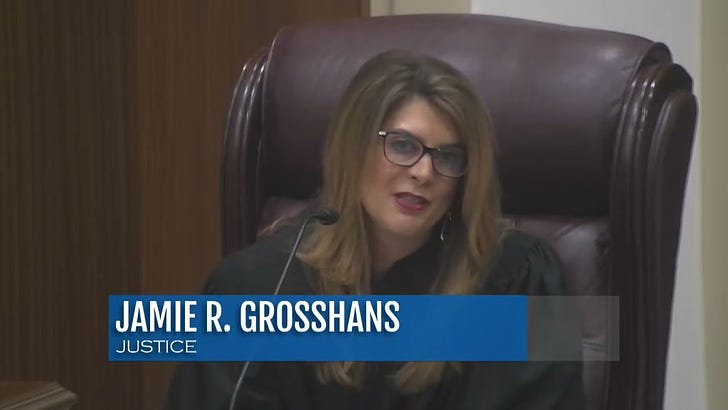


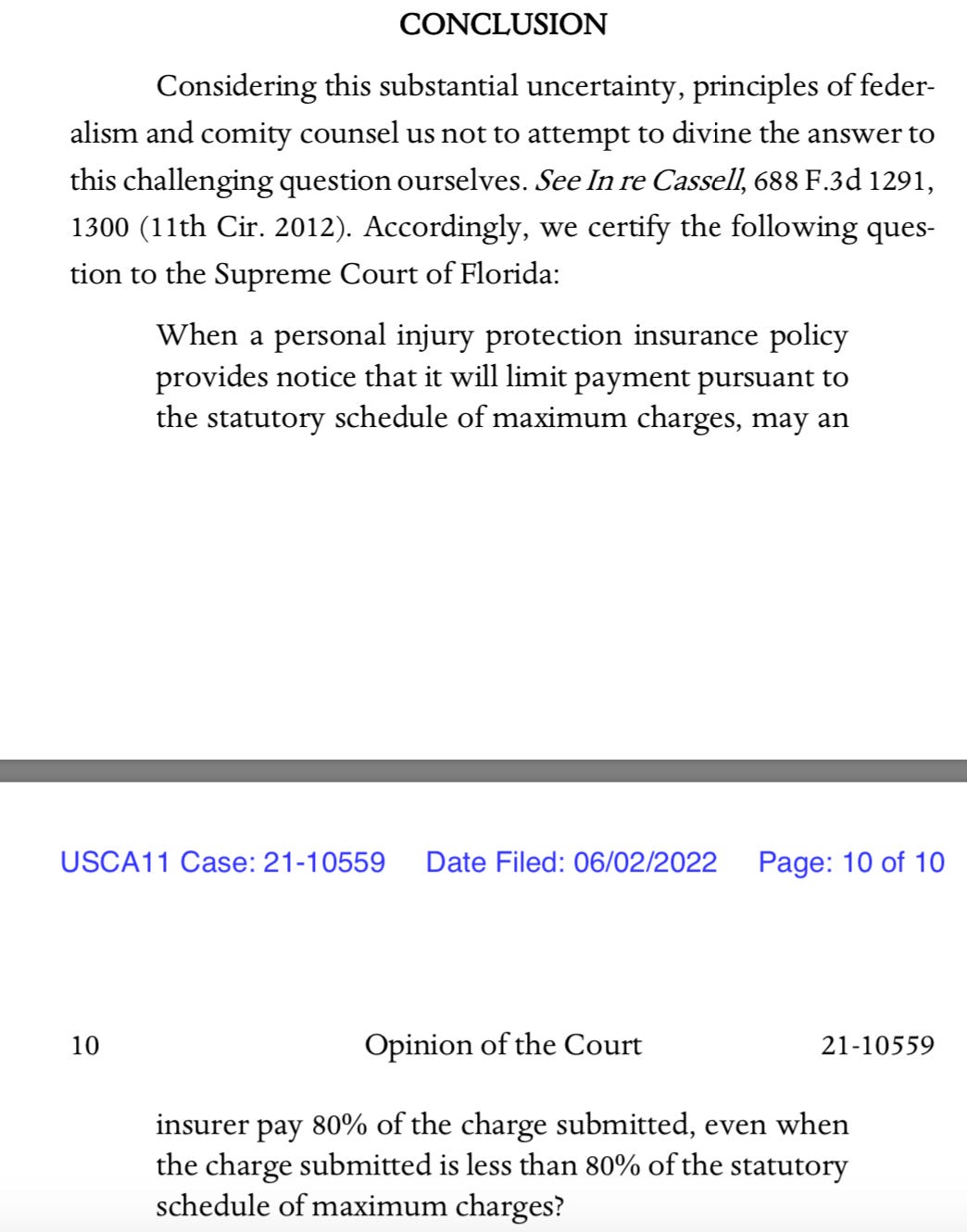
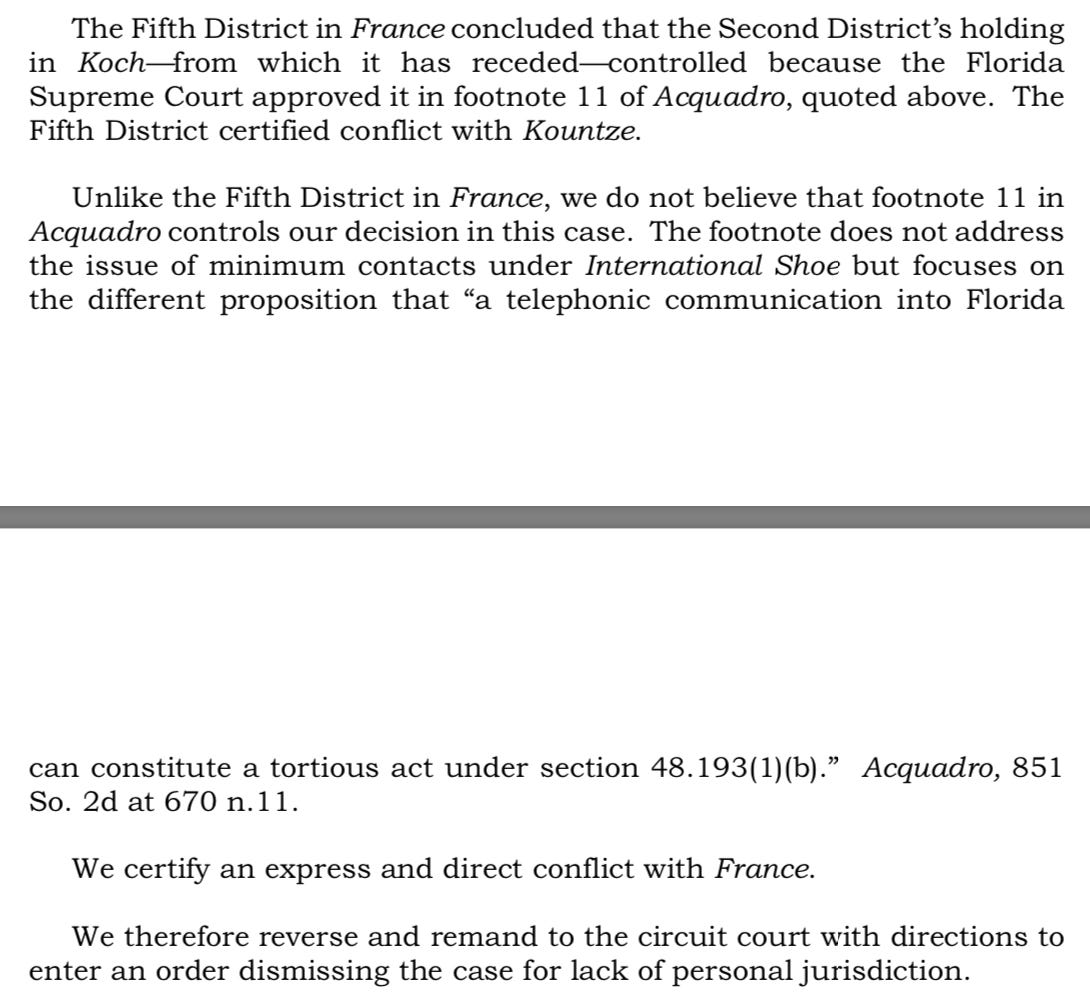
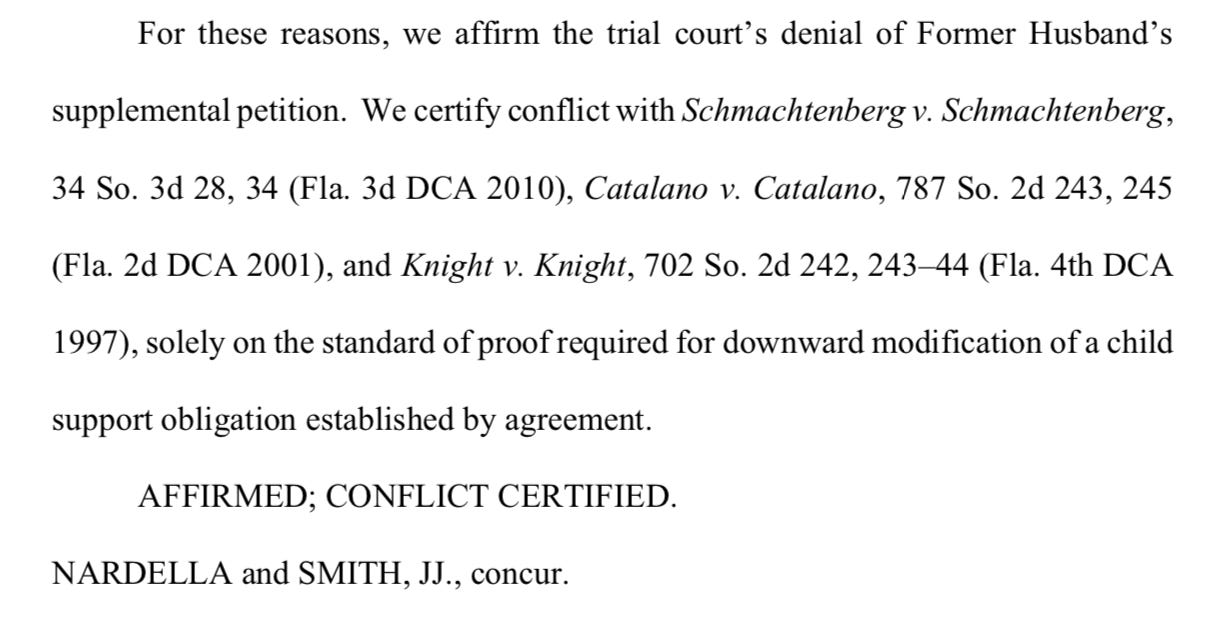
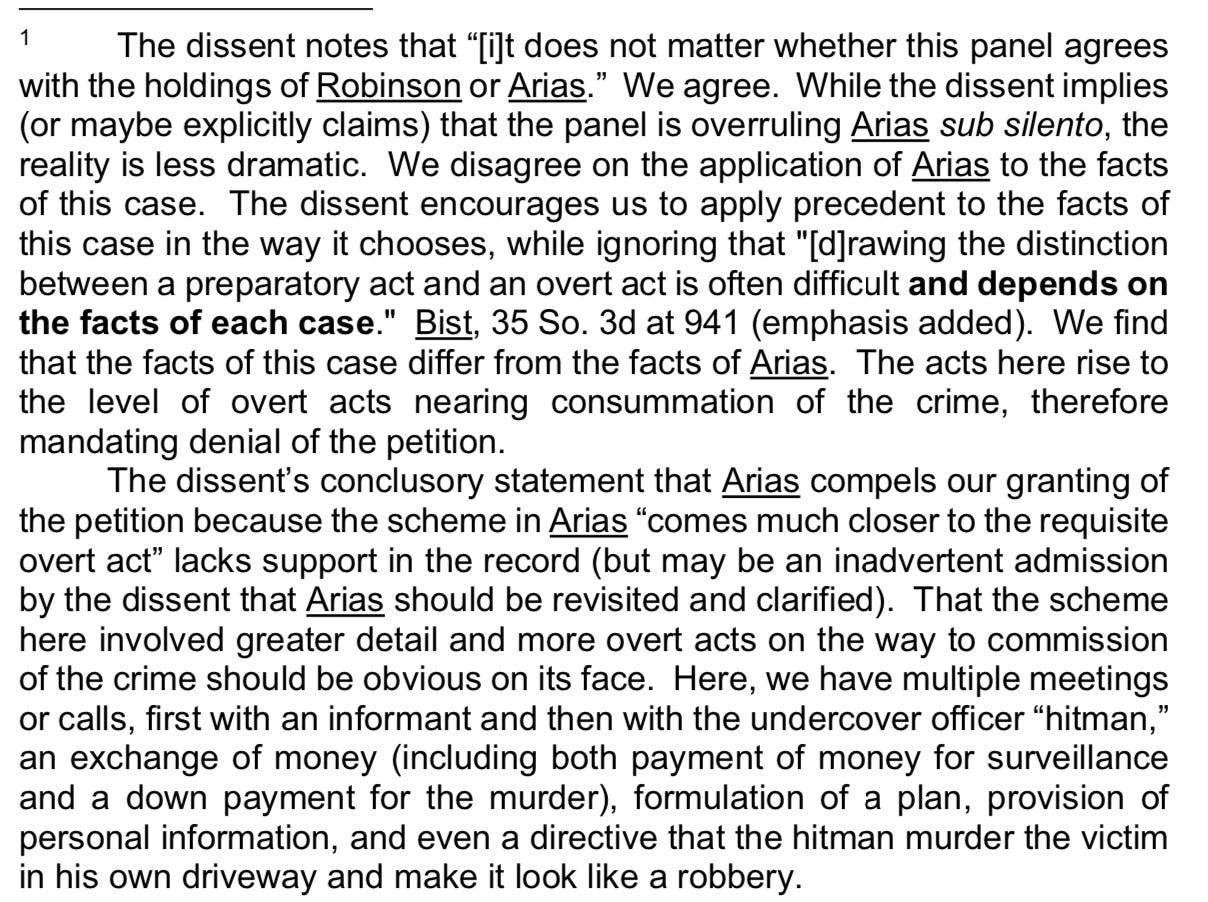
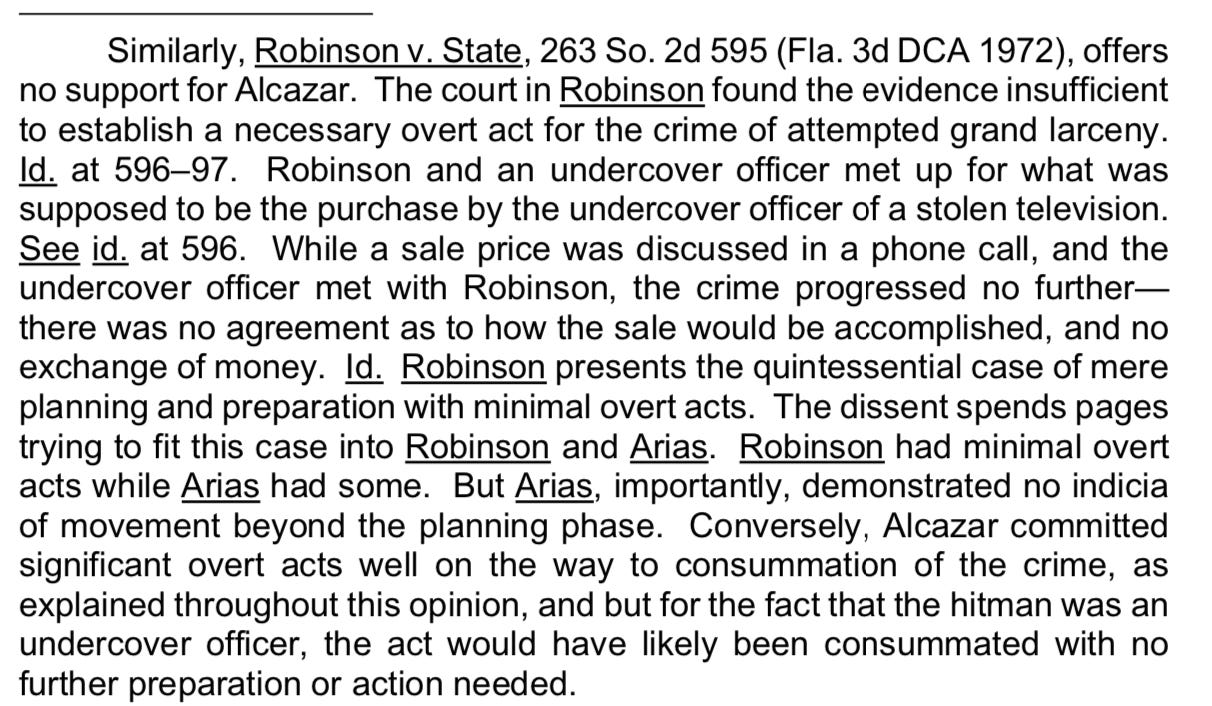
Great post, and thanks for the shoutout!